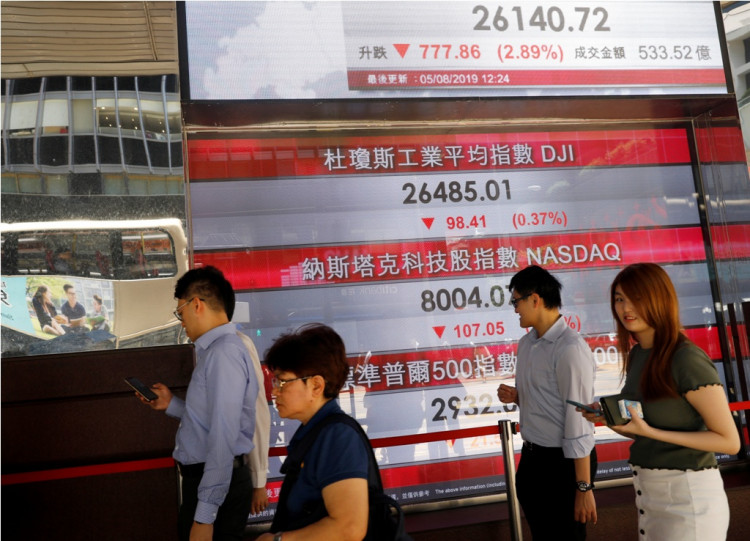U.S. President Donald Trump's statements on Sunday about trade talks up for September couldn't save Asian stocks from slumping on Monday's early trading. Most Asian markets reacted negatively to the new round of tariffs that took effect a day earlier.
According to CNBC, the Topix index dropped 0.25 percent, Japan's Nikkei 225 slipped by 0.35 percent, and Softbank Group saw stocks declining by 1.8 percent. The MSCI Asia index also shed 0.11 percent, Australia's S&P/ASX 200 saw fractional declines, and South Korea's Kospi lost 0.22 percent.
The biggest loss recorded on Monday was Korean chemical giant LG Chem Ltd., as the company shed around three percent. It is worth noting that the company was recognized in 2017 as the 10 biggest chemical firm on a sales basis.
Analysts said the slump in Asian shares can be attributed largely to the escalation of the China-U.S. trade war as the two sides slapped new rounds of tariffs that took effect on Sunday.
Aside from the stock market, oil prices were also largely affected by the news. U.S. crude futures slipped by 0.54 percent and Brent crude futures shed 0.71 percent. The futures now trade at $54.80 and $58.83 per barrel respectively.
As expected by some analysts, U.S. stocks also saw a dark cloud on Monday as stock futures dropped 0.7 percent. Futures for the S&P 500 shed as much as 1.06 percent, triggering talks about long-term effects of the trade war to the global economy.
Some studies previously predicted that Washington's fresh 15 percent tariffs on various Chinese products could cost American consumers around $1,000 annually. This is not to mention the new tax duties Beijing also clapped-back with.
On Friday, trading activity was much better as the Chinese government dropped hints about its willingness to re-negotiate with the White House. The Commerce Ministry's spokesman, Gao Feng, said Beijing wants to resolve the ongoing trade disputes with "a calm attitude."
Feng's comments sent Asian stocks and Dow futures jumping, CNN reported. Kospi increased by 1.7 percent, the Nikkei index added 1.1 percent, the Shanghai Composite Index hiked by 0.5 percent, and Hong Kong's Hang Seng Index saw an increase of 0.8 percent.
Senior Market Analyst at Oanda's Asia Pacific branch, Jeffrey Halley, said while Feng's statements were not as big as investors were expecting, it did stop them from making moves that would trouble global markets.
Beijing has yet to confirm if trade negotiations are planned sometime this month. On the other hand, many economists and stock analysts are hopeful of positive developments as both countries feel the brunt of the new tariffs.




